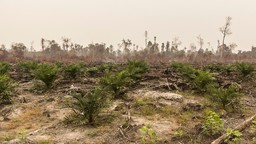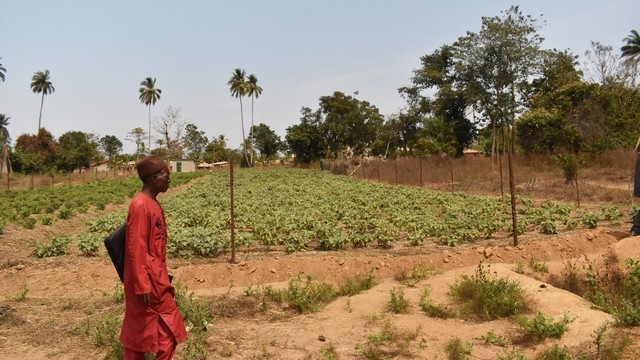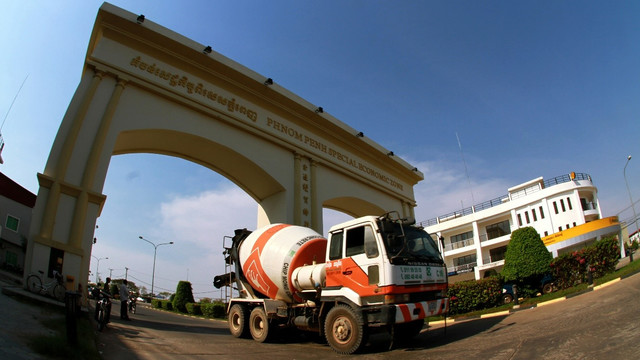Palm oil trade between Indonesia and Europe: promoting corporate accountability
A collaborative action-research project to explore corporate accountability in palm oil trading between Indonesia and the European Union.
Researcher (law, economies and justice programme), Natural Resources research group

A road was build by a palm oil company operating in Central Kalimantan, replacing natural forest. As the forest disappears, so does the village’s hunting culture (Photo: AP AMAN Kalteng)
Growing demand for palm oil and favourable land, tax and trade policies in producer countries have promoted the spread of industrial monoculture plantations for export commodities. In Indonesia, planted areas covered more than 16 million ha in 2021, making Indonesia a leading global producer with 30.8 million tonnes exported in 2022. The European Union is a main export market for Indonesia’s palm oil.
The expansion of oil palm cultivation in Indonesia has come with environmental and social costs, including large-scale deforestation, biodiversity loss, pollution and adverse climate impacts, and violations of labour, land and human rights.
Land conflicts are on the rise, particularly in connection with transfers of rights over territories from their historical occupants to commercial actors. In many parts of Indonesia, Indigenous Peoples and local communities have mobilised to seek accountability but often struggle to have their rights protected.
What did IIED do?
IIED worked with a group of Indonesian organisations led by YLBHI, the Indonesian Legal Aid Foundation, to promote corporate accountability in the palm oil sector. The project focused on the palm oil trade between Indonesia and the European Union.
The action-research took a climate justice approach, connecting oil palm plantations in Indonesia to national policies and laws and to the international markets where public policies aimed at reducing fossil fuel consumption have fostered demand for palm oil.
While YLBHI has led activities to support affected people and communities, particularly in Central Kalimantan, IIED conducted complementary analysis to:
- Better understand the transnational political economy of the sector and the legal frameworks underpinning it
- Distil insights from diverse legal empowerment and advocacy approaches for protecting Indigenous Peoples’ rights, and
- Support collective reflection on strategies to enhance transnational accountability for land, environmental and human rights violations.
The analysis fed into activities in support of people and communities affected by oil palm cultivation in Central Kalimantan.
As the project came to an end, IIED and YLBHI also collaborated on a briefing paper, a long read and videos to share lessons on selected themes from the action research – from how international trade arrangements are driving the impacts to the case for policy reform to strengthen Indigenous Peoples’ rights in the face of large-scale investments.
Key threads from this work are now being taken forward through the Advancing Land-based Investment Governance (ALIGN) project.
News and updates
Additional resources
Blog: The push for clean energy: how nickel mining expansion is impacting agrarian economies in Indonesia | Dalam bahasa Indonesia
Watch an interview with Muhammed Habibi, who highlights how replacing forests with oil palm plantations affects environmental sustainability and causes conflict
Watch an interview with Ferdi Kurnianto, who outlines how oil palm plantations take away the living spaces of Indigenous Peoples
Partners
Yayasan Lembaga Bantuan Hukum Indonesia (YLBHI) Indonesia Legal Aid Foundation) and LBHI Palangka Raya (local chapter)
Wahana Lingkungan Hidup Indonesia (WALHI) Indonesia Forum for the Environment)
Aliansi Masyarakat Adat Nusantara, Central Kalimantan / Indigenous Peoples' Alliance of the Archipelago (AMAN Central Kalimantan)






